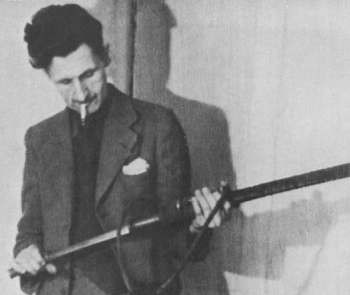
Grant Park, 2008
There are few things more annoying than when a white commentator starts to talk about “the black vote”, not in terms of numbers (which can be captured objectively), but in terms of psychology, because it not only assumes a familiarity with every black voter, but assumes that they think en masse. It certainly isn’t intentional racism, but it is a thrown blanket in ways we don’t do with other groups. The “white working class” is probably the broadest market segment for non-minorities, which shows the subtle racial distinction at play. We have “soccer moms” and “NASCAR dad” and so on, and then “the black vote”, and the “Hispanic vote”. It’s pernicious, and assumes a group mentality in the place of actual examination.
That said, there’s no way Trump is going to get the black vote.
Lauren Fox at Talking Points Memo has an article this morning exploring how analysts don’t really expect a dropoff in the African-American vote, after the highs of Obama. That’s hugely important, because it can negate Trump’s perceived advantage in Ohio, Pennsylvania, and a few other rusty states where he hopes to get high turnout among the (white) economic dispossessed.
There are a couple of reasons for this. TPM talks about how this election is also about Obama’s legacy, which is accurate in a few ways. An election is always partly about the incumbent, whether he is running for another term or finishing up. 2008 was partly a repudiation of Bush; 2000 was about Clinton’s moral failings (the majority of the country still picked Gore, but he lost 5-4), 1988 was about Reagan, etc. In this case, where Republicans have made no bones of their desire to tear down any social progress made by the President, the legacy is even starker. They want to erase everything Obama has done.
It goes slightly deeper than that: they want to erase not just his policies, but his very existence. They want to destroy the thought that there was a successful black President, to make him a footnote. That’s been their driving goal, and there is no one more suited to that than Trump.
You couldn’t have picked a better candidate to remind everyone who cares about racial justice the huge stakes of this election. Trump of course rose to political fame for being the country’s top birther. He has demanded not just to see proof that Obama was born in America, which is flagrantly racist (he’s got dark skin! He’s not one of us!) but also, even more disgustingly, waged a campaign to demand Obama’s college transcripts. In a way, that is far more racist. Obama, of course, isn’t the brilliant and hyper-intelligent person most people see him as, see? He got into college through affirmative action, taking a spot away from “someone” who deserves it. He’s just another dumb…well, you know, right folks?
That’s the kind of campaign that Trump runs, that made him famous. He’s the one who says everything that can be said, everything that people who hate Obama not-so-secretly believe. He’s negating not just Obama’s political accomplishments, but his every achievement. He’s saying, plainly, that Obama doesn’t deserve to be here, that he’s President because of affirmative action, essentially. He runs a campaign of negation, making plain what other Republicans have been trying to do for eight years.
So there is that. But there is also something that Elijah Cummings, who might know more about this than I do, told TPM. “I think Trump helps drive black voter turn out. I really do,” says Rep. Elijah Cummings (D-MD) “He has created more unforced errors than any politician I’ve ever seen…People question his judgement.”
Oh yeah, one thinks. That’s right: the “black vote” isn’t just about black issues, obviously. That’s what we were talking about up above. The “black vote” is made up of millions of humans, many of whom can see that a Trump presidency is terrifying. It isn’t just about Obama’s legacy or any of those issues. It’s about being an engaged voter. Maybe, at the end of the day, Trump’s legacy will be that we recognize that every voting bloc contains multitudes, and they can’t be reduced. That they contain humans. Humans who are horrified that such an unqualified ill-temepered racist chump could be President.


